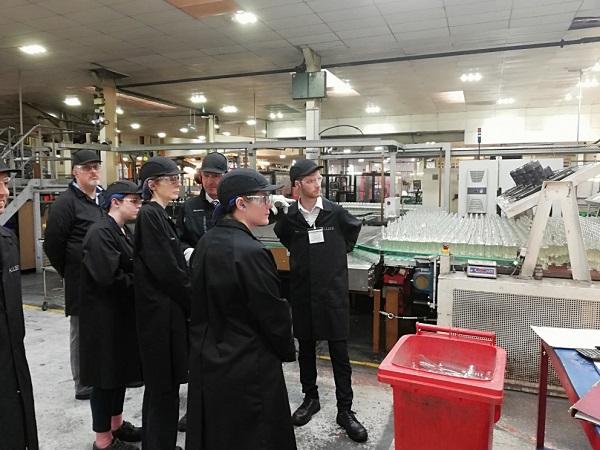
The container plant visit, organised by British Glass and hosted by its member Allied Glass, was arranged to help officials make informed decisions on energy policy for glass manufacturing by seeing production at first-hand.
Four BEIS officials joined British Glass for the second time this year, following a visit in January to Pilkington UK Ltd’s float glass plant in St Helens.
This visit was an opportunity for British Glass to spell out the pressing energy policy issues for the glass sector – including energy pricing, renewables compensation (ROFiT) eligibility and future arrangements for emissions trading post-Brexit.
As the UK enacts its industrial strategy and works towards Brexit, British Glass is working with government at all levels, across departments, to ensure the importance of glass manufacturing is recognised and the factors that will determine the ongoing success of this sector clearly understood.
Allied Glass designs, develops and produces bottles for the spirits industry across two UK manufacturing sites, in Leeds and Knottingley. The visit included a site tour of the Leeds factory which operates two flint furnaces feeding nine production lines.
The visit allowed Allied representatives to explain their concerns and ambitions to BEIS officials face to face.
Paul Pearcy Environment, Health and Safety Adviser at British Glass, said:
“We’re pleased to provide opportunities for BEIS to meet our members and learn about the industry first hand so that government is able to make informed decisions about future energy policy. Currently the glass sector is concerned about the level that the ROFiT eligibility threshold with be set: it’s vital this is fair and doesn’t create competitive distortion between glass manufacturers producing similar products.”
British Glass is currently working collating energy data from its members to feed into the ROFiT consultation, due to be launched by BEIS imminently.


 You are not logged in, please sign in to view contact
You are not logged in, please sign in to view contact Info release
Info release Promotion
Promotion Building shop
Building shop Online business
Online business